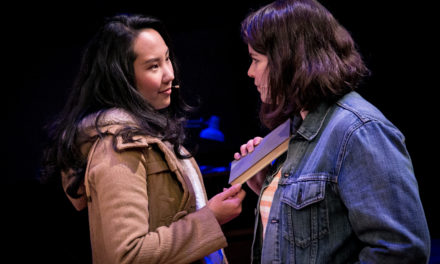Emory students of all races gathered in Harland Cinema on Saturday night for Black Star Emory’s first-ever Free Jam, a Black History Month event designed to celebrate African American contributions to the arts with hip-hop, R&B and poetry performances. The event planners are all members of the staff of Black Star Magazine, a bi-annual publication that has rejuvenated its presence on campus over the past couple of years. Black Star was originally targeted toward the black community at Emory, but staff members insist the publication is open to perspectives from all races.
“We wanted to bring the excitement of having hip-hop and R&B artists here at Emory to not only celebrate an integral part of our culture, but to also listen to something familiar,” College junior and Co-Managing Editor Malaika Nicholas said.
Most notably, the event organizers were able to bring in spoken-word poet Joshua Bennett, a second year doctoral candidate at Princeton University and former Marshall Scholar. Bennett accepted an invitation to perform in front of President Barack Obama at the White House in May 2011. After receiving a tip from a friend that Bennett would be in Atlanta for a conference, college sophomore and Black Star staff member Ibra Diallo made it his mission to book him. “I was looking for a spoken-word poet to end the show,” Diallo said. “I knew that Joshua Bennett would be the perfect one for the occasion … when you hear his poetry, you realize he tells stories from the heart.” When Bennett’s bill proved to be too much for Black Star‘s budget, Diallo, along with Michael Johnson, another member of the magazine’s staff, contributed their own money to fill the expense gap.
The evening began with performances from JID and Earth Gang, both of whom hail from the Atlanta area. Unsurprisingly, Harland Cinema’s notoriously difficult sound system proved especially unruly, but to their credit, the young rappers persevered quite bravely, traveling into the audience to get up-close and personal with audience members even as their mics faltered.
The mood of the evening shifted considerably when Marian Mereba took the stage, armed first with just an acoustic guitar and later with two backup singers, who had some difficulty locating the event. Mereba’s silky, soothing voice and introspective lyrics recall artists like Corinne Bailey Rae and India Arie. Her debut EP, entitled Room for Living, comes out on Feb. 14.
Mereba’s pensive performance set the stage for Joshua Bennett’s set, an intense half hour of spoken word that left at least a hundred eyes teary. Bennett’s rhythmic, expressive delivery of his poems – which use layers of metaphor, figurative language and spiritual themes to discuss subject matter ranging from race to family – had the audience totally enraptured, and as soon as he was finished, a long line of fans assembled to meet him. Asked how he felt about the evening in general, Johnson replied: “Taking into consideration the stressful negotiations, time-consuming promotions, difficulty in coordinating missing performers, absurd amount of technical difficulties and the nervous tick I developed from all of the above – perfect.”
– By Lane Billings
The Emory Wheel was founded in 1919 and is currently the only independent, student-run newspaper of Emory University. The Wheel publishes weekly on Wednesdays during the academic year, except during University holidays and scheduled publication intermissions.
The Wheel is financially and editorially independent from the University. All of its content is generated by the Wheel’s more than 100 student staff members and contributing writers, and its printing costs are covered by profits from self-generated advertising sales.





